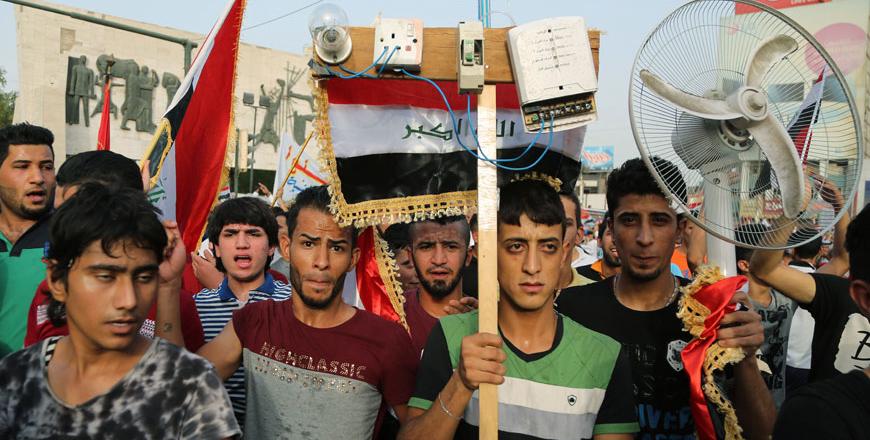You are here
Iraq court overturns PM decision to scrap VP posts
By AFP - Oct 10,2016 - Last updated at Oct 10,2016

Pro-government forces drive in military vehicles in Iraq’s eastern Salaheddin province, south of Hawijah, on Monday, as they clear the area in preparation for the push to retake the northern Iraqi city of Mosul (AFP photo)
BAGHDAD — Iraq’s top court on Monday overturned Prime Minister Haider Al Abadi’s decision to abolish the vice presidency, declaring it unconstitutional in a blow to the premier’s problem-plagued reform efforts.
Abadi has announced a series of reforms over the past year in response to popular anger over abysmal services and widespread corruption, but implementing them has proved difficult and little in the way of deep or lasting change has been achieved.
The ruling may return Nuri Al Maliki, Abadi’s predecessor and rival in the Dawa Party, to a vice presidential post, of which there were three when the premier sought to abolish them last year.
The court ruled that “the existence of one or more vice presidents of the republic is required by the constitution,” judicial spokesman Abdelsattar Bayraqdar said in a statement.
That wording leaves open the possibility that the number of vice presidents could be reduced without requiring an amendment to the constitution as long as at least one remained.
Explaining the ruling, Bayraqdar referred to Article 69 of the constitution, which the court ruled stipulates the existence of the post, and Article 75, which says that the vice president will fill in if the president is absent.
Given the requirements of those two articles, doing away with the vice presidency would necessitate a constitutional amendment following procedures outlined in Article 142, a step that was not taken, Bayraqdar said.
Abadi’s spokesman Saad Al Hadithi told AFP that the court’s decision would be respected, also saying that the aim of removing the vice presidential posts was to reduce government expenditures.
Iraq is facing a financial crisis due to low prices of oil — on which it depends for almost all government revenue — that followed years of corruption and waste when prices were high.
Abadi proposed scrapping the vice presidency in August 2015 as part of a series of measures in response to weeks of protests.
Parliament then voted two days later in support of the measures proposed by Abadi, but did not amend the constitution to eliminate the vice presidency.
The court case challenging the abolition of the vice presidential posts was filed by Osama Al Nujaifi, a former parliament speaker and one of three ex-vice presidents along with Maliki and Iyad Allawi.
The posts — which came with large salaries and security details but few responsibilities — were effectively consolation prizes for the three who have seen their political influence wane in recent years.
Allawi lost his 2010 bid for the premiership to Maliki, who was replaced by Abadi in 2014, the same year that Nujaifi was replaced as speaker of parliament.
Monday’s ruling did not address the issue of who would now hold the posts, which could either revert to Nujaifi, Maliki and Allawi or be filled by one candidate or more selected by parliamentary vote.
Populist Shiite cleric Moqtada Al Sadr, who has repeatedly called for pro-reform demonstrations this year, issued a statement criticising the decision and calling for a “huge popular protest” at the court following Shiite religious commemorations this week.
Iraq has been hit by repeated political upheaval — including parliament’s recent removal of the defence minister — during the course of its more than two-year war against the Daesh terror group.
Iraqi forces are now preparing for the battle to retake Mosul, the last city to be held by the extremists in the country.
Related Articles
BAGHDAD — Iraqi Prime Minister Haider Al Abadi proposed scrapping top government posts and privileges on Sunday in an ambitious reform drive
BAGHDAD — Iraq's parliament on Monday referred to the public prosecutor a report calling for the trial of former prime minister Nouri Al Mal
BAGHDAD — Iraq's parliament voted unanimously on Monday to bar the government from passing important reforms without its approval in an effo


















